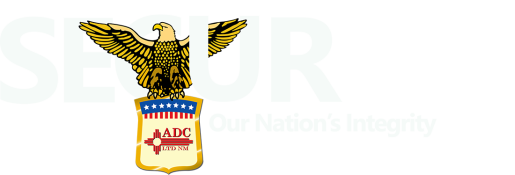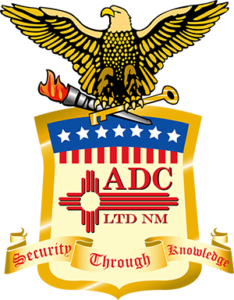
6 Crucial Things Employers Must Check in a Professional Resume
When someone applies for a job, the professional resume is one of the first things employers look at to see if they’re a good fit. Resumes show the candidates’ qualifications and help employers see what makes them unique.
Improving their resume can help them get more job interviews and increase their chances of getting a job they like. In this article, we explain what to put on a resume and share tips on how to show the education, work experience, and skills to employers.

What Employers Must Look for in Resumes
Job candidates can adjust, add, remove, or change sections on their resume depending on the job they want, but here’s a general list of what they should include that employers must look for:
1. Professional Header
Every professional resume template typically begins with a professional header, a section that contains:
- The Name (Often as the page title for easy identification)
- Phone Number
- Email Address (Use a professional email handle)
To ensure employers can contact them, they must include accurate contact details. A professional email address is most suitable. Carolynn Bruce, SHRM-SCP, suggests putting in the effort to make their statement stand out.
Candidates must offer the reader insight into who they are and pique the employer’s curiosity. If they’re unsure what to say, they can ask three people to describe their strengths in three words and incorporate these traits throughout their professional resumes.
Additionally, depending on the specific job they seek, they should consider hyperlinking to an online portfolio or profile on a professional networking site, like LinkedIn. It can provide prospective employers with additional information about their work and qualifications.
Whatever the applicants include, they have to make sure it’s truthful. Employers will conduct background checks to know them better.
2. Professional Summary
The professional summary, or a resume summary, is a concise statement that outlines the professional background and highlights essential skills, education, or work experience that make a candidate interesting.
Tailoring this section to match the employer’s preferences by examining the job posting is crucial. Applicants must craft a description that captivates hiring managers, authentically represents their qualifications, and complements the rest of their professional summary for their resume.
Here’s an example of a professional summary:
“Seasoned digital marketing professional with a strong track record of crafting successful digital marketing campaigns. Adept at data analysis and market research, I have consistently driven substantial brand visibility and revenue increases.
An MBA graduate passionate about innovative strategies, I’m committed to achieving marketing excellence and delivering measurable results for your company.”
3. Education
Many employers have specific educational requirements for their job openings. Therefore, candidates must demonstrate that they meet these qualifications by including an education section in their resume.
If you check out professional resume examples, you can see that it’s best to arrange their educational experiences chronologically.
They must also align them with their current career stage. For example, they can omit their high school education if they’re a recent college graduate. Each entry in the education section should typically include:
- Degree name and institution
- School’s location
- Minor (if applicable)
- Graduation year (especially if within the last three years)
Any relevant academic honors, coursework, extracurricular activities, or achievements during their educational journey, depending on the relevance to the job they’re applying for.
4. Work Experience
The work experience section of their resume provides a snapshot of their past employment history. Recruiters use this part for cross-referencing during an employment background check. Employers must find a list of their most pertinent work experiences, beginning with the most recent job.
Typically, job-seekers must focus on their work from the past 10 to 15 years. For example, if they’ve been a marketer for 11 years, they can omit earlier, unrelated jobs that don’t pertain to their current career goals.
However, if they have limited professional experience, they can include other jobs to demonstrate their work ethic and transferable skills.
When describing their work experience, they must emphasize the outcomes they’ve accomplished and the skills utilized. They can refer to a professional resume builder to help organize this part.
Simply listing a generic job description doesn’t effectively showcase their expertise and abilities. They must maximize the impact of every word while maintaining a visually pleasing balance on their resume.
Each entry in the work experience section should encompass the following:
- Job title
- Employment dates
- Employer name and location
There must be bullet points outlining relevant responsibilities and achievements, focusing on using past tense for describing previous roles. Employ action verbs and incorporate metrics to quantify their accomplishments.
5. Skills
In addition to showcasing their skills through education and work experience, it’s beneficial to dedicate a section specifically for their skills. In this part of applicants’ professional resumes, they can highlight hard and soft skills and proficiency.
As they review job postings, they must take note of keywords that align with their skills and incorporate them into this section where applicable.
6. Certifications
In specific industries, such as engineering, construction, or food service, certifications are often prerequisites for employment. To emphasize the candidates’ relevant qualifications, creating a dedicated certifications section on their resume is a good idea.
In this section, provide the official name of the certification and the institution that awarded it. They can also include the year of certification or its expiration date, if applicable. If they struggle here or in any part of their resume, they can always seek help from professional resume writers.
Make Hiring Seamless With ADC LTD
A well-crafted resume is a vital key to unlocking career opportunities. It’s your first impression of potential employees, showcasing their skills, experiences, and qualifications.
Remember — never underestimate its power! The applicant’s resume determines whether you should interview them or not. And when you do, trust ADC LTD for employee background investigation needs. Their resume opens the door, but background checks ensure you bring the right talent.
Your hiring success starts with the candidate’s stellar professional resume, and ADC LTD ensures a reliable, thorough employee background investigation follows it. Take the first step today!

